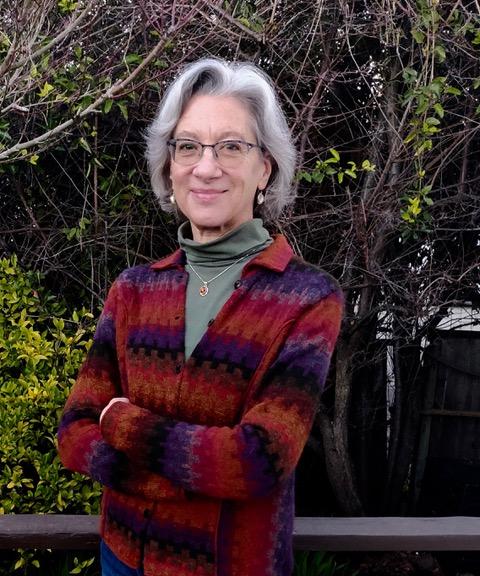Read the remaining content with membership access. Join or log in below to continue.
Sed ut perspiciatis unde omnis iste natus error sit voluptatem accusantium doloremque laudantium, totam rem aperiam, eaque ipsa quae ab illo inventore veritatis et quasi architecto beatae vitae dicta sunt explicabo. Nemo enim ipsam voluptatem quia voluptas sit aspernatur aut odit aut fugit, sed quia consequuntur magni dolores eos qui ratione voluptatem sequi nesciunt. Neque porro quisquam est, qui dolorem ipsum quia dolor sit amet, consectetur, adipisci velit, sed quia non numquam eius modi tempora incidunt ut labore et dolore magnam aliquam quaerat voluptatem.
References
Hahn, C. (1998). Becoming political: Comparative perspectives on citizenship education. SUNY Press.
Hess, D.E. (2009). Controversy in the classroom: The democratic power of discussion. Routledge.
Hess, D.E. & McAvoy, P. (2015). The political classroom: Evidence and ethics in democratic education. Routledge.
Hess, D.E. & Zola, J. (2012). Professional development as a tool for improving civic education. In D.E. Campbell, M. Levinson, & F.M. Hess (Eds.), Making civics count: Citizenship education for a new generation (pp. 183-206). Harvard Education Press.
Ho, L., McAvoy, P., Hess, D., & Gibbs, B. (2017). Teaching and learning about controversial issues and topics in the social studies. The Wiley Handbook of Social Studies Research, 319-335.
Journell, W. (2022). Classroom controversy in the midst of political polarization: The essential role of school administrators. NASSP Bulletin, 106(2), 133-153.
Kahne, J. & Middaugh, E. (2008). High quality civic education: What is it and who gets it? Social Education, 72(1), 34-39.
Kawashima-Ginsberg, K. & Junco, R. (2018). Teaching controversial issues in a time of polarization. Social Education, 82(6), 323-329.
Kawashima-Ginsberg, K. & Levine, P. (2015). Challenges and opportunities for discussion of controversial issues in racially pluralistic schools. Social Education, 79(5), 271-277.
Kerr, D. & Huddleston, E. (2015). Teaching controversial issues: Training pack for teachers. Council of Europe. rm.coe.int/16806948b6
Pace, J.L. (2015). The charged classroom: Predicaments and possibilities for democratic teaching. Routledge.
Pace, J.L. (2019). Contained risk-taking: Preparing preservice teachers to teach controversial issues in three countries. Theory & Research in Social Education, 47(2), 228-260.
Pace, J.L. (2021a). Hard questions: Learning to teach controversial issues. Rowman & Littlefield.
Pace, J.L. (2021b). How can educators prepare for teaching controversial issues? Cross-national lessons. Social Education, 85(4), 228-233.
Pace, J.L. & Journell, W. (2021, November 2). Why controversial issues must still be taught in U.S. classrooms. EdSource. edsource.org/2021/why-controversial-issues-must-still-be-taught-in-u-s-classrooms/663103
Parker, W.C. (2006). Public discourses in schools: Purposes, problems, possibilities. Educational Researcher, 35(8), 11-18.
Pollock, M., Rogers, J., Kwako, A., Matschiner, A., Kendall, R., Bingener, C., Reece, E., Kennedy, B., & Howard, J. (2022). The conflict campaign: Exploring local experiences of the campaign to ban “critical race theory” in public K-12 education in the U.S., 2020-2021. UCLA’s Institute for Democracy, Education, and Access.
Torney-Purta, J., Lehmann, R., Oswald, H., & Schulz, W. (2001). Citizenship and education in twenty-eight countries: Civic knowledge and engagement at age fourteen. International Association for the Evaluation of Academic Achievement.
Woo, A., Wolfe, R.L., Steiner, E.D., Doan, S., Lawrence, R.A., Berdie, L., Greer, L., Gittens, A.D., & Schwartz, H.L. (2022). Walking a fine line — Educators’ views on politicized topics in schooling: Findings from the State of the American Teacher and State of the American Principal Surveys. RAND Corporation. www.rand.org/pubs/research_reports/RRA1108-5.html

Judith L. Pace (pace@usfca.edu) is professor of teacher education at the University of San Francisco. Her work and resource on teaching about controversial issues can be found at https://teachingcontroversies.com
Recent Issues
EVALUATING PROFESSIONAL LEARNING
February 2024
How do you know your professional learning is working? This issue digs...
TAKING THE NEXT STEP
December 2023
Professional learning can open up new roles and challenges and help...
REACHING ALL LEARNERS
October 2023
Both special education and general education teachers need support to help...
THE TIME DILEMMA
August 2023
Prioritizing professional learning time is an investment in educators and...











